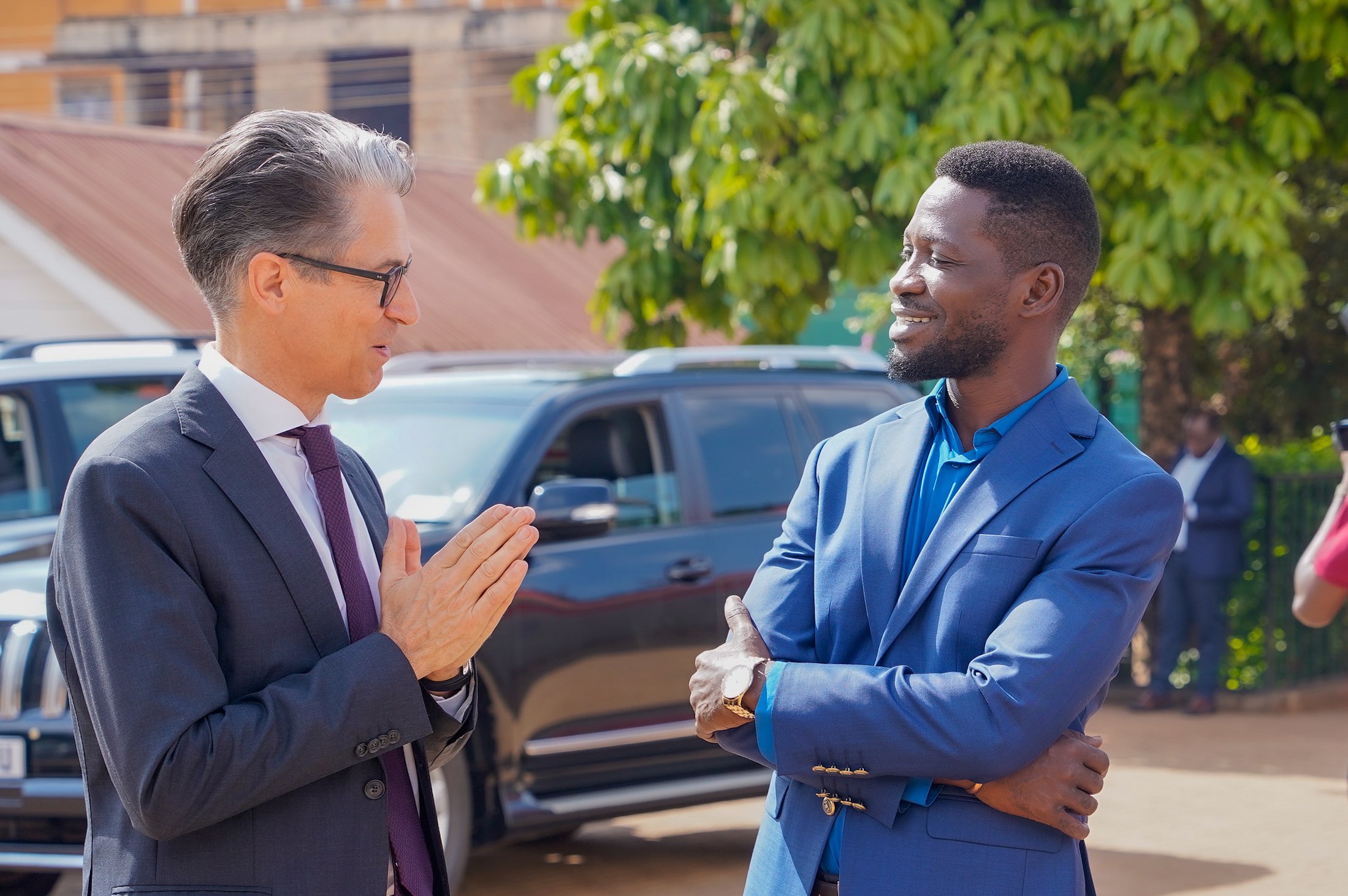The European Union has pledged to remain actively engaged in monitoring Uganda’s political environment as the country prepares for its 2026 general elections.
Ambassador Jan Sadek, head of the EU delegation to Uganda, made this commitment during a meeting with the leadership of the National Unity Platform (NUP) on May 12, 2025, at their headquarters in Makerere Kavule.
Addressing the media after the meeting, Ambassador Sadek described the engagement as productive, noting that the EU is concerned about recent developments in Uganda, particularly incidents surrounding electoral processes and the protection of human rights.
“As diplomats and observers, we are following closely what is happening in Uganda. We have observed this year several worrying incidents, including violence during the Kawempe North by-election and the use of force by security agencies, some of it reportedly directed at journalists,” he said.
Sadek emphasized that the European Union’s role is not to interfere but to support Uganda in upholding the values enshrined in its Constitution, including the right to free and fair elections, freedom of expression, and the rule of law. He added that the EU would continue to engage with all political actors, civil society organizations, and government institutions in a bid to promote transparency and accountability ahead of the 2026 vote.
“We appeal to the government and all stakeholders to respect democratic principles and human rights. Our focus is to ensure a peaceful and inclusive electoral process that reflects the will of the people,” he said.
The meeting is part of a broader effort by the EU delegation to engage political parties and better understand their preparations and concerns ahead of the upcoming elections.
NUP president Robert Kyagulanyi, also known as Bobi Wine, expressed appreciation for the meeting and used the opportunity to highlight concerns about political freedoms and human rights in Uganda.
“We shared our experiences and concerns, especially regarding human rights violations, arrests of opposition members, and shrinking civic space,” Kyagulanyi said. “We also raised the case of Eddie Mutwe, who remains in detention, and we welcome the EU’s willingness to follow up on such issues.”
Kyagulanyi noted that while diplomatic missions have at times been perceived as silent or distant on domestic matters, continued engagement and international solidarity could help foster a more democratic environment.
The NUP leadership also briefed the EU delegation on their party’s plans for the 2026 elections, including mobilization strategies, policy priorities, and challenges they face in the current political climate.
The EU has previously participated in observing Uganda’s elections, including sending an Election Observation Mission (EOM) during the 2016 general elections. However, in the 2021 elections, the EU chose not to send a full observation mission, citing limitations in access and transparency.
With just under a year to the next polls, several development partners and international observers have begun early consultations with political actors to promote peaceful and credible elections.
Ambassador Sadek reaffirmed that the EU remains a committed partner to Uganda’s development and democratic growth, noting that constructive dialogue with all stakeholders is key to building trust and a stable political environment.
